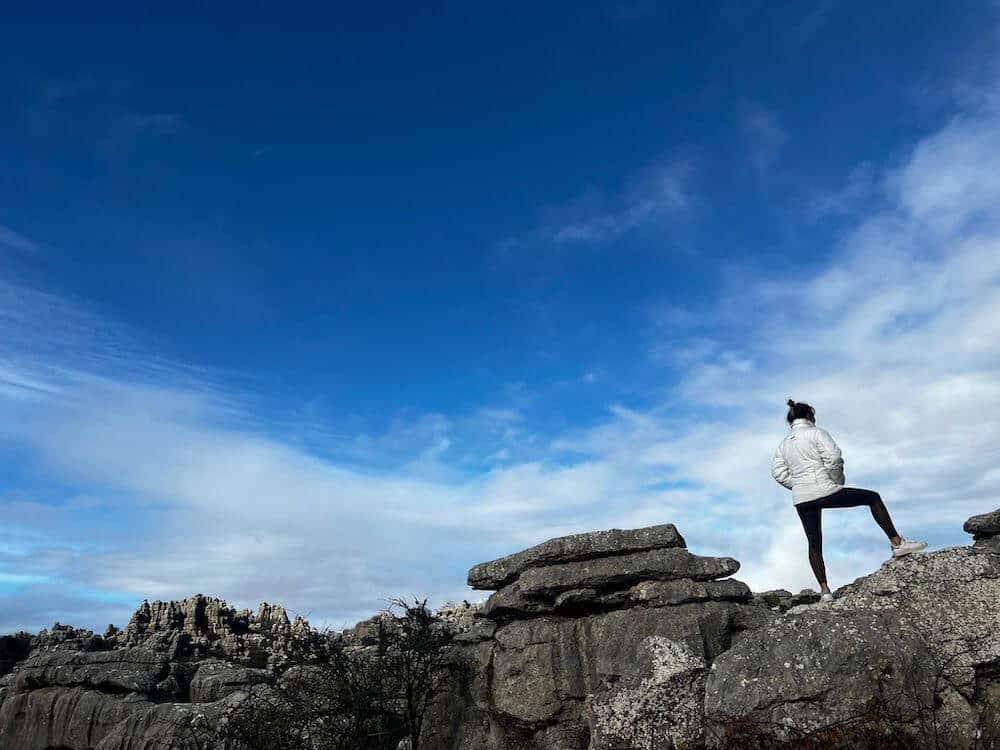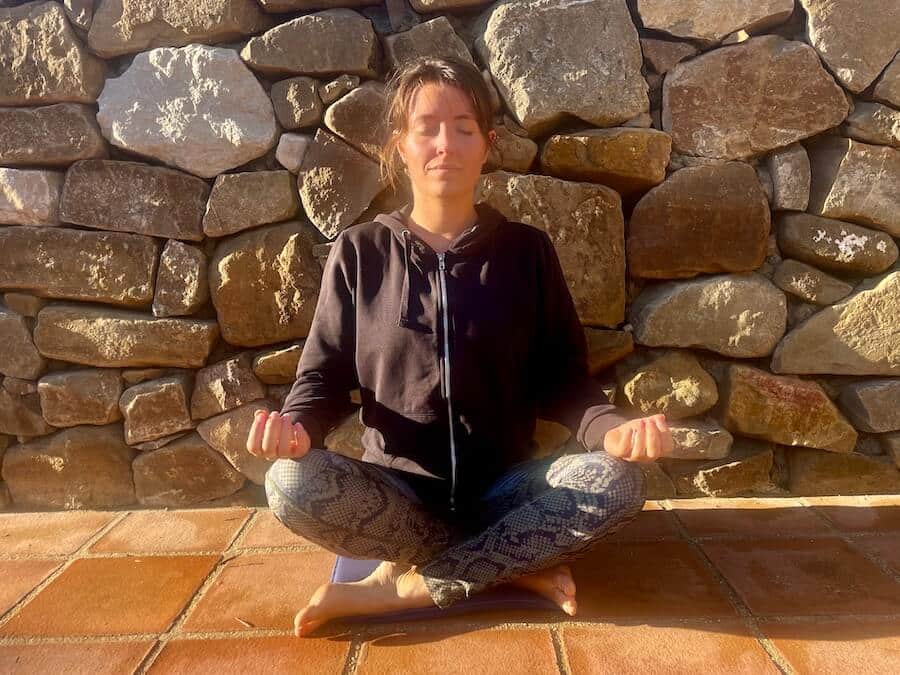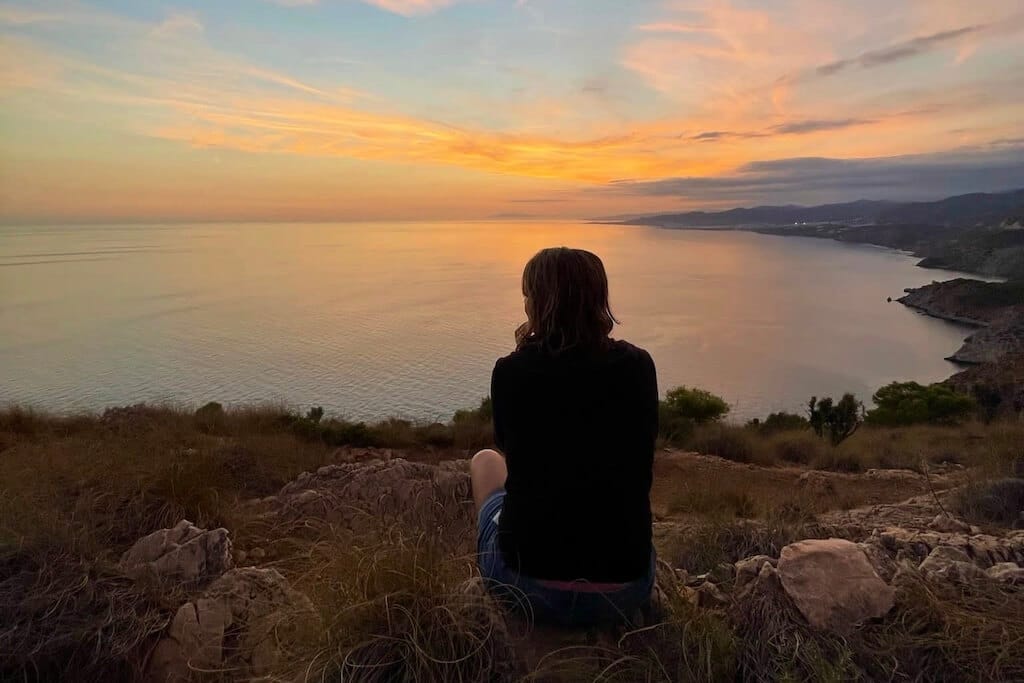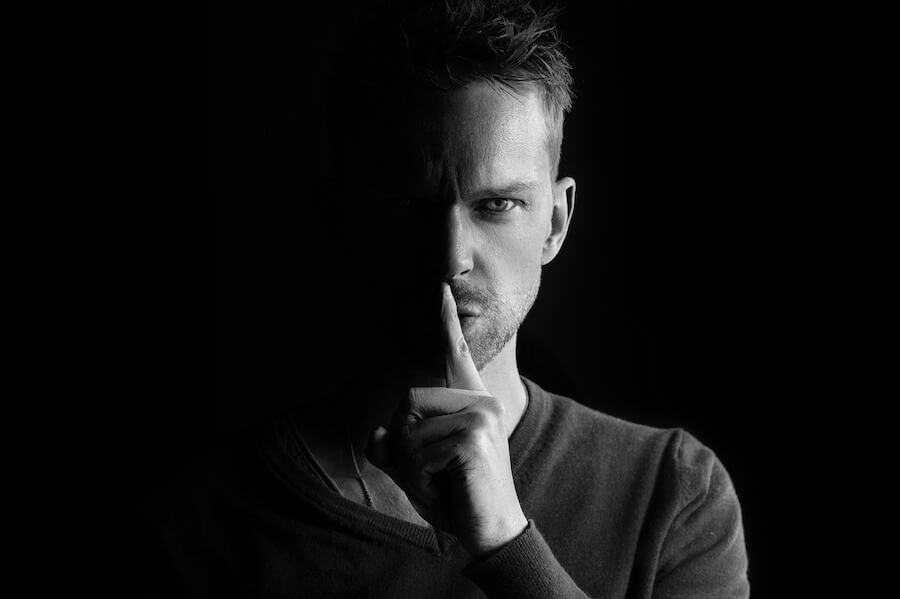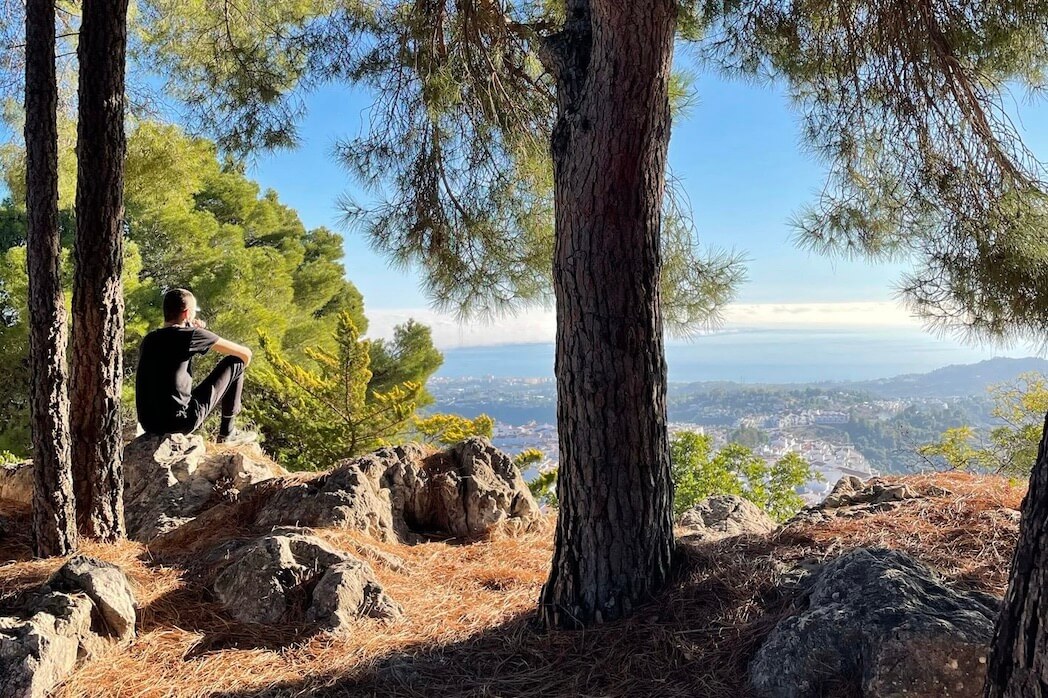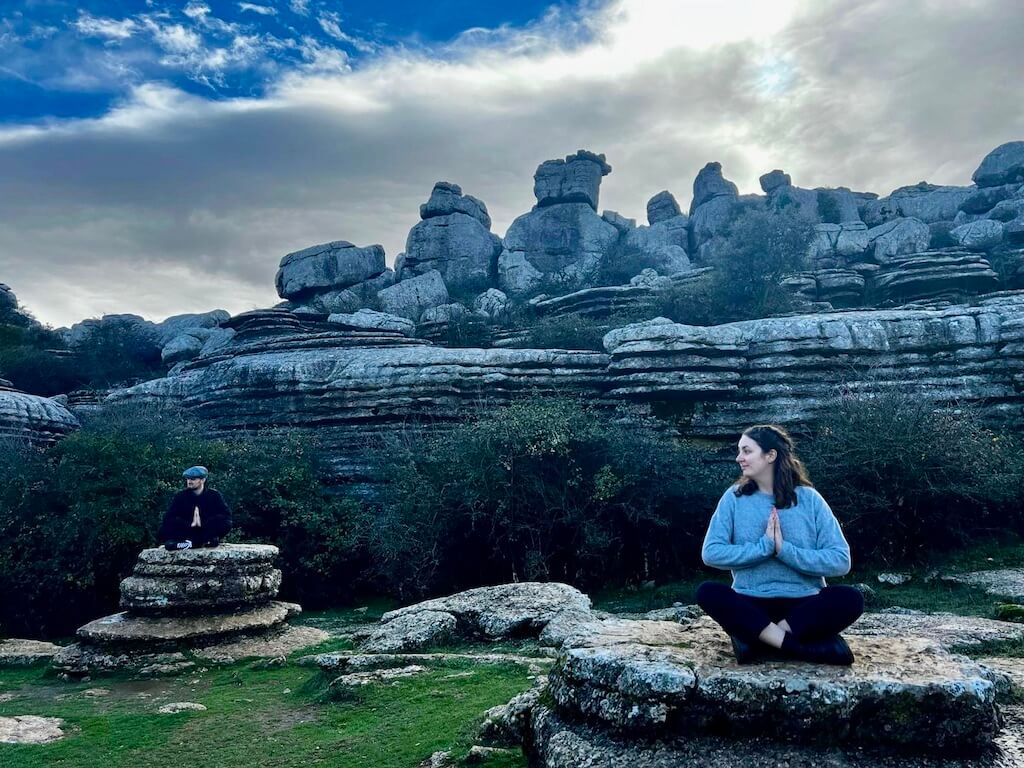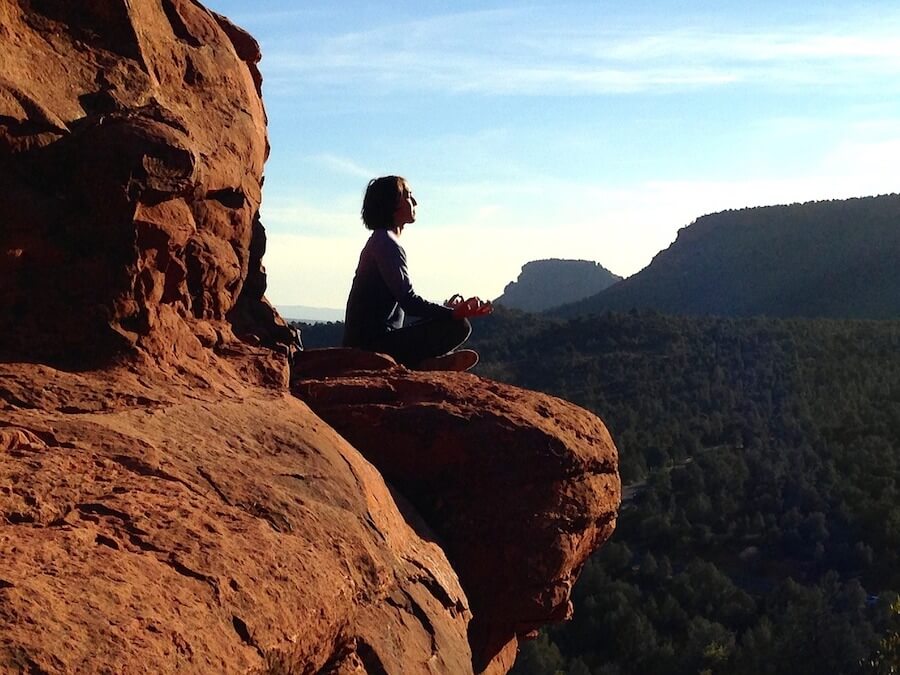So the thought flashes across your mind, I don’t understand mindfulness.
And I can’t practise mindfulness when I have a zillion thoughts criss-crossing my mind, squabbling for attention. Too much happening to keep track of.
And I definitely can’t learn mindfulness skills on my own.
Oh but you can!
And it isn’t as difficult as you think.
It takes time, sure.
And practise.
And persistence.
But it comes, and then it improves your life and you’ll find it incomprehensible to rewind back to the way you were before.
And it you think it doesn’t work, hang on a sec, because there are ways to help you get some of these great benefits in your life.
And remember, there’s no wrong way to meditate as long as you find the best way for you.
Everyone can learn to meditate and unleash the power of mindfulness in its true strength.
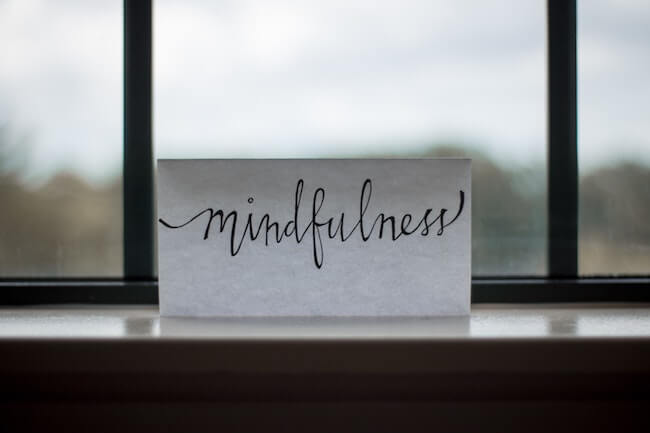
Table of Contents
So Seriously, What is Mindfulness?
Mindfulness is about being fully in the moment, living in the moment without attaching judgement or analysis or any other thought process to what’s happening.
Being mindful is about being present and accepting of all that is.
Mindfulness is fundamental in so many spiritual practices across the world, not just in a particular religion or belief system.
You do whatever you do with utter attention to it. Your senses are aware of what signals they receive without triggering the chatter of the inner mind.
And when you’re completely involved in the moment, absorbed by what you’re doing and without the chatter of the mind, then you become focussed and all-present.
You can learn to understand the concept of mindfulness on a logical level and you can experience it, and even if you think you don’t understand it, you most probably have lived it, even if it was a long time ago when you were small. Maybe even before you can remember.
Does Mindfulness Really Work?
Mindfulness works in many ways to bring positive changes to your life. When we behave reactively to everything that happens we put ourselves through a roller coaster of emotions, sometimes unnecessarily.
By practising mindfulness throughout the day we can learn to stay in a calm zone instead of jumping into fight or flight zone when something goes wrong.
But it isn’t only for when things go wrong. Practising mindfulness can bring you a deep sense of peace and appreciation for many moments through the day. And that can lead to more joy and happiness in your daily lifestyle.
Mindfulness brings about tangible benefits such as . . .
- being fully present in the moment
- enhanced concentration
- listening fully
- greater appreciation
- being less reactive to emotions
- greater peace of mind
- increased ability to be non-judgemental
- experiencing greater acceptance for events beyond your control
- greatly reduced stress levels
- improved health from reduced stress
- capacity to retain information better (more focussed attention)
- non-attachment to things around you
Can Mindfulness Transform Your Life?
There’s no doubt that mindfulness can transform your life, but such a hugely sweeping statement needs some clarification.
Mindfulness is a process. It isn’t an end result and there isn’t a finishing line.
Once you start to practice mindfulness, you can increase your awareness slowly, over time. But each day, you enjoy the process and live in the moment.
So in a contradictory nature, if you’re looking for transformation, you may see not see any. And if you focus on the moment, over time you will see transformation.
The type of transformation that mindfulness can bring is both physical and mental and can be far reaching.
You may find your ability to concentrate gets better and your patience is stronger. All the qualities which living mindfully can bring, also lead to other rewards: you see the moment unfolding around you more than you would have before, and you may benefit from much more appreciation for what you have in your life.
How many of us rush through a day, wrapped up in our thoughts of how to pay the bills, or how to solve an argument or any other such mental problem we donate our attention too?
And in the meantime we miss that beautiful moment that the sun dropped from the horizon, or the glowing smile the shop assistant bestowed on you, or the subtle appreciation in your partner’s eyes as you say hello.
When you live too much in your head and not enough in the moment, you lose quality of life, and mindfulness can give that back to you.
Being in the Zone
If you’ve ever made a piece of art and got into the ‘zone’ while you’re busy with the creation, then you’ll know what it can feel like to be completely mindful and in the moment.
But this is just one of the many ways you can be in the zone.
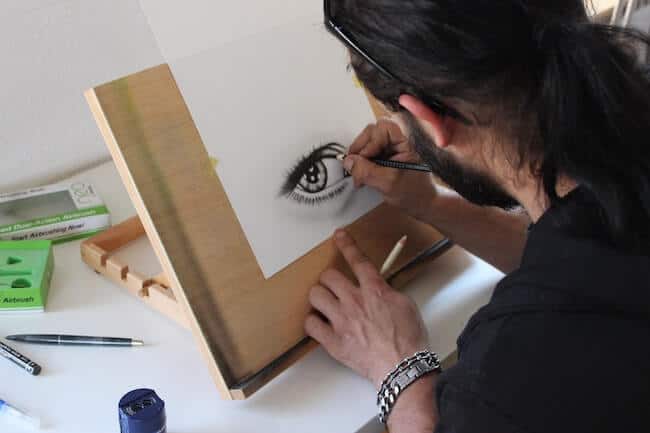
It’s a special feeling, a completeness without distractions which you can achieve during physical exercise, yoga, meditation, art, music and more.
You can practise mindfulness with meditation with or without music, and apply a mindful attitude to your daily life.
If you’ve ever felt what it’s like to be in the zone, then you’ve experienced how it is to be mindful.
Is Mindfulness an Art?
Mindfulness isn’t a mysterious ability which you have to have a special skill for. It’s more something that you can practise and get better at.
Some people may find it easier to learn mindfulness and for others it can be more challenging. But it’s worth taking the time to evolved the practise to include mindfulness in your life.
And as you become more mindful, the easier it will get and the more positive qualities you’ll see manifesting in your life.
You may find it of interest to read about how to manifest- the life you want.
Don’t compare yourself to others, just go at your own pace and observe how you feel as you improve at the practice of mindfulness in your daily life.
Is Mindfulness the Same as Meditation?
No, the two terms do not refer to the same thing.
You can practise both mindfulness and meditation but they are distinctly different.
In Positive’s Psychology’s article on the differences between mindfulness and meditation they point out that meditation is one of the many roads to mindfulness.
You can meditate in a noisy environment and practise mindfulness among the chaos for example.
But while meditation can enhance mindfulness, you can also practise mindfulness without including meditation.
You can practise mindfulness in your every day activities. For example, start being more mindful when you eat; listen to others more mindfully; be mindful with your responses etc.
Mindfulness meditation is one form of meditation, but not the only form. There are many other types of meditation, such as transcendental meditation, zen meditation, guided meditation and more.
So mindfulness meditation is one of the tools to help you to learn to be more mindful in life. And if you’re wondering how long it will take to learn mindful meditation, some people start to feel the benefits fright rom the start, while others need to persevere for a few weeks.
As well as that, mindfulness meditation can be practised with the eyes open or closed, a distinct advantage if you’re bringing your practice in to your work environment.
All it Takes is 10 Minutes – Andy Puddicombe on Ted Talks
What do you Miss if You aren’t Mindful?
Along the way, if you don’t notice the wind blowing through the leaves or the glimmer of light reflecting off the water, then you’re missing out.
Studies show that the average person in the USA is busy thinking about other things and not actually taking notice of the present moment, for about 47% of their time.
That’s a lot of missed moments, not to mention all the other benefits that come from being truly present.
So if you’ve ever said, I don’t understand mindfulness, and if you’ve wondered if mindfulness really works, then I suggest you give it a try and start to practise mindfulness in your daily life.
Mindfulness and a Vegan Whole Foods Plant Based Diet
Becoming mindful affects everything you do. You’ll become more aware of other people’s feelings, of how sharply you just responded to someone you care about for example.
Or suddenly, walking down the street you might become aware of the pitter patter of rain against the pavement and the realisation of your own tiny importance in the enormity of the universe.
And as you become more aware, you become awakened to a deeper love and respect for your own body as well as the wellbeing of others.
This means that you likely won’t want to support violence against animals anymore, and at the same time, you’ll want to feed yourself on health producing foods.
To accomplish all this and more, you just need to embark on a whole foods plant based diet and change the way you think about food.
No longer is it just about feeding your senses. It’s about feeding your higher conscience and your longevity.
If you’re interested in a vegan lifestyle, check out this simple guide to a vegan lifestyle or these common vegan FAQ
